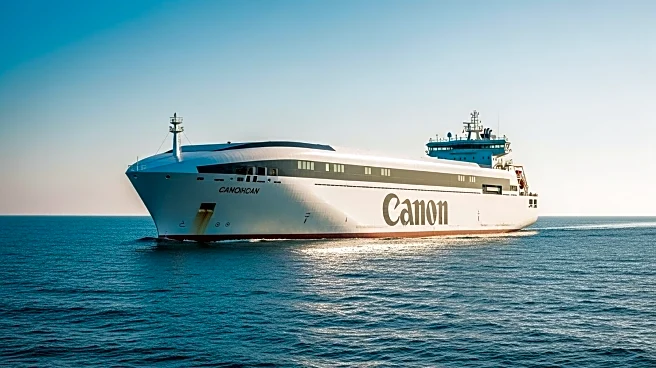What is the story about?
What's Happening?
The global shipping industry has reaffirmed its support for the International Maritime Organization's (IMO) Net Zero Framework, which aims to achieve net zero greenhouse gas emissions by 2050. This commitment comes ahead of the IMO Marine Environment Protection Committee meeting, where governments will discuss the adoption of this regulatory package. The framework includes incentives to invest in green marine fuels and aims to ensure a just transition for the maritime workforce. The shipping sector, responsible for moving 90% of global trade, is poised to play a crucial role in this environmental initiative.
Why It's Important?
The shipping industry's support for the IMO Net Zero Framework is a pivotal step towards global decarbonization efforts. As a major contributor to greenhouse gas emissions, the maritime sector's commitment to reducing its carbon footprint is crucial for achieving international climate goals. This initiative could lead to significant investments in sustainable technologies and fuels, driving innovation and potentially reshaping the industry. The framework also emphasizes a fair transition for workers, highlighting the social dimensions of environmental policies.
What's Next?
The upcoming IMO Marine Environment Protection Committee meeting will be a critical moment for the adoption of the Net Zero Framework. Governments will need to agree on the regulatory measures and incentives necessary to implement the framework effectively. The shipping industry will likely continue to collaborate with IMO member states to ensure the successful execution of these plans. Stakeholders will be monitoring the outcomes of the meeting closely, as they will have far-reaching implications for global trade and environmental policies.
Beyond the Headlines
The adoption of the IMO Net Zero Framework could have long-term impacts on international trade and environmental regulations. It may lead to increased scrutiny of shipping practices and push for more stringent environmental standards across industries. The focus on a just transition for the workforce also raises important questions about labor rights and economic equity in the context of environmental policies. This initiative could serve as a model for other sectors seeking to balance economic growth with sustainability.















